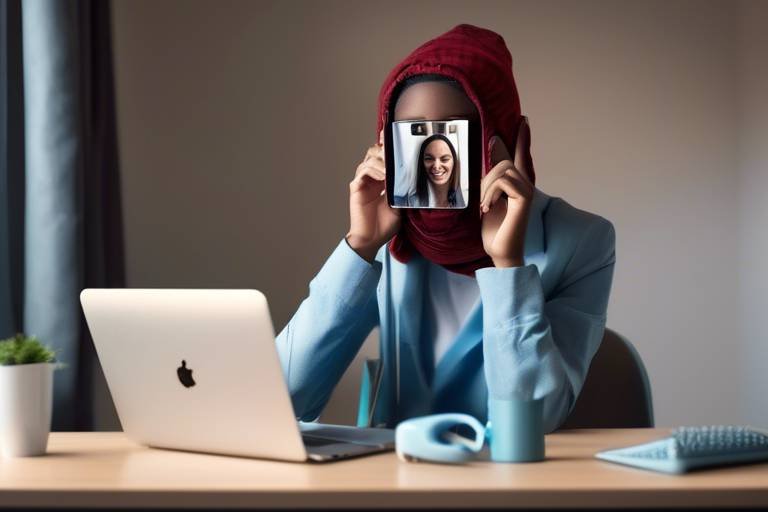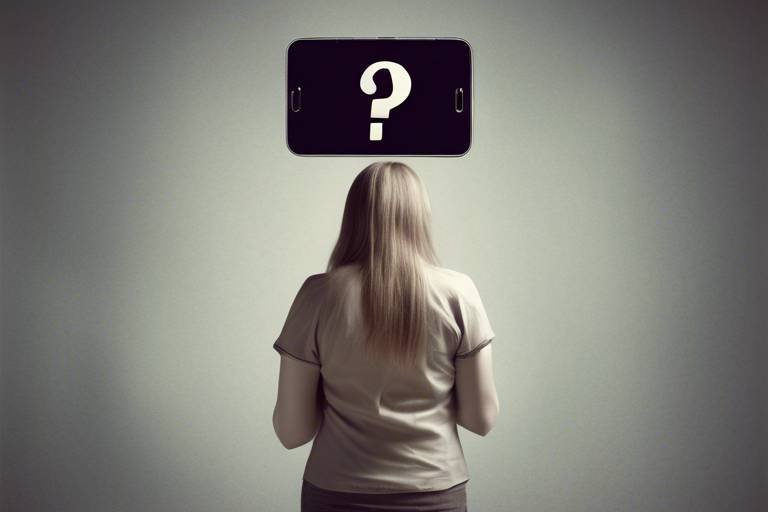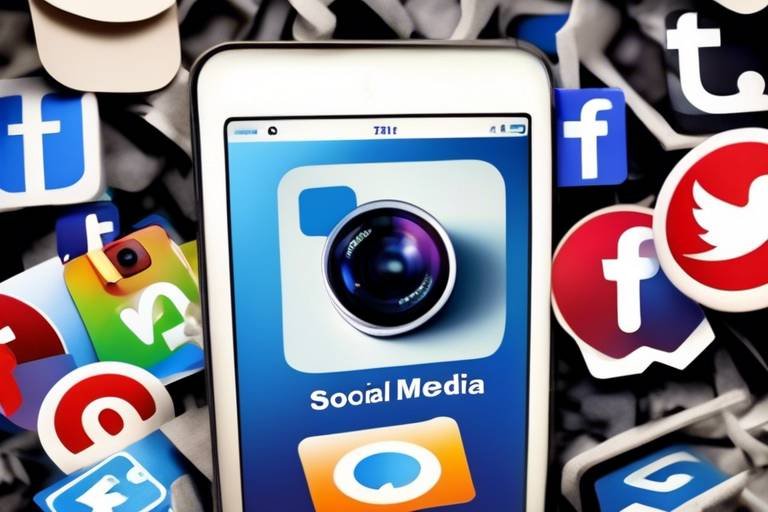Are You Friends with Strangers? Social Media Dangers Exposed
In today's digital landscape, social media has become the new town square, where people gather to share their lives, opinions, and experiences. But have you ever stopped to think about the dangers that lurk behind those friendly profiles? While the internet offers a treasure trove of connections, it also harbors risks that can lead to serious consequences. This article explores the risks associated with befriending strangers on social media, highlighting potential dangers and offering insights on how to navigate these platforms safely.
Many individuals seek connection online, drawn by the allure of friendships that transcend geographical boundaries. It's like a modern-day friendship bazaar where anyone can set up a stall and showcase their personality. But why do we find ourselves so captivated by these virtual interactions? The answer lies in our inherent need for connection. Humans are social creatures, and the internet provides a convenient way to meet others who share our interests, hobbies, or even our struggles.
However, this desire for connection can sometimes cloud our judgment. We may overlook the fact that not everyone online has our best interests at heart. The psychological impact of forming online relationships can be significant, as they often provide a sense of belonging and validation. But they can also lead us down a rabbit hole of deception and emotional turmoil. So, how do we strike the right balance between forming meaningful connections and protecting ourselves from potential harm?
Recognizing warning signs in online interactions is crucial for safety. Just like you would be cautious when meeting someone new in person, the same rules apply online. Here are some key red flags to watch for when engaging with strangers on social media:
- Overly Generic Profiles: If their profile lacks personal details or seems too polished, be wary.
- Inconsistent Stories: If their narrative changes frequently, it’s a sign something may be off.
- Requests for Personal Information: Genuine friends won’t pressure you for sensitive details.
One of the most alarming issues in the realm of online friendships is catfishing, where individuals create false identities to deceive others. It's like a game of masquerade, but the stakes can be incredibly high. Here, we discuss how to identify fake profiles and protect oneself from deceitful interactions. Look for signs such as:
Understanding the common signs of a catfish can help users avoid scams. Typical behaviors include:
- Using stock photos instead of personal images.
- Refusing to video chat or meet in person.
- Creating profiles with little to no personal history.
Safeguarding personal information is vital in the digital age. Remember, not everything needs to be shared online. Here are some tips on what to share and what to keep private:
- Share: General interests and hobbies.
- Keep Private: Your home address, phone number, and financial information.
Strangers can sometimes use emotional manipulation to exploit vulnerabilities. It’s a tactic as old as time, where someone plays on your feelings to gain trust or sympathy. This section delves into tactics used by manipulators and how to recognize and respond to them. If someone seems overly eager to share their problems or seeks your emotional support too quickly, it might be a red flag.
Engaging with strangers online can lead to both positive and negative outcomes. On one hand, you might find a supportive community that uplifts you during tough times. On the other hand, these relationships can also lead to emotional distress, scams, and even harassment. It’s essential to weigh the risks and rewards before diving headfirst into online friendships.
While there are risks, online friendships can also provide support and community. Many people have found lifelong friends or even romantic partners through social media. These connections can lead to enriching experiences, from sharing knowledge to providing emotional support during difficult times.
Conversely, online friendships can lead to negative experiences. The internet is rife with individuals looking to exploit others, whether through scams or emotional manipulation. It’s crucial to stay vigilant and protect your mental well-being by recognizing when a relationship is becoming toxic.
Implementing safety measures is essential for a positive online experience. Here are some practical tips and strategies for users to protect themselves while navigating social media platforms:
- Always verify the identity of new friends.
- Be cautious about sharing personal information.
- Trust your instincts; if something feels off, it probably is.
Q: How can I tell if someone is genuine online?
A: Look for consistency in their stories, personal details in their profiles, and willingness to engage in video chats.
Q: What should I do if I suspect I’m talking to a catfish?
A: Trust your gut feelings. If you notice inconsistencies, it’s best to cease communication and report the profile.
Q: Can online friendships be as fulfilling as in-person ones?
A: Absolutely! While they can be fulfilling, it's essential to remain cautious and aware of the risks involved.
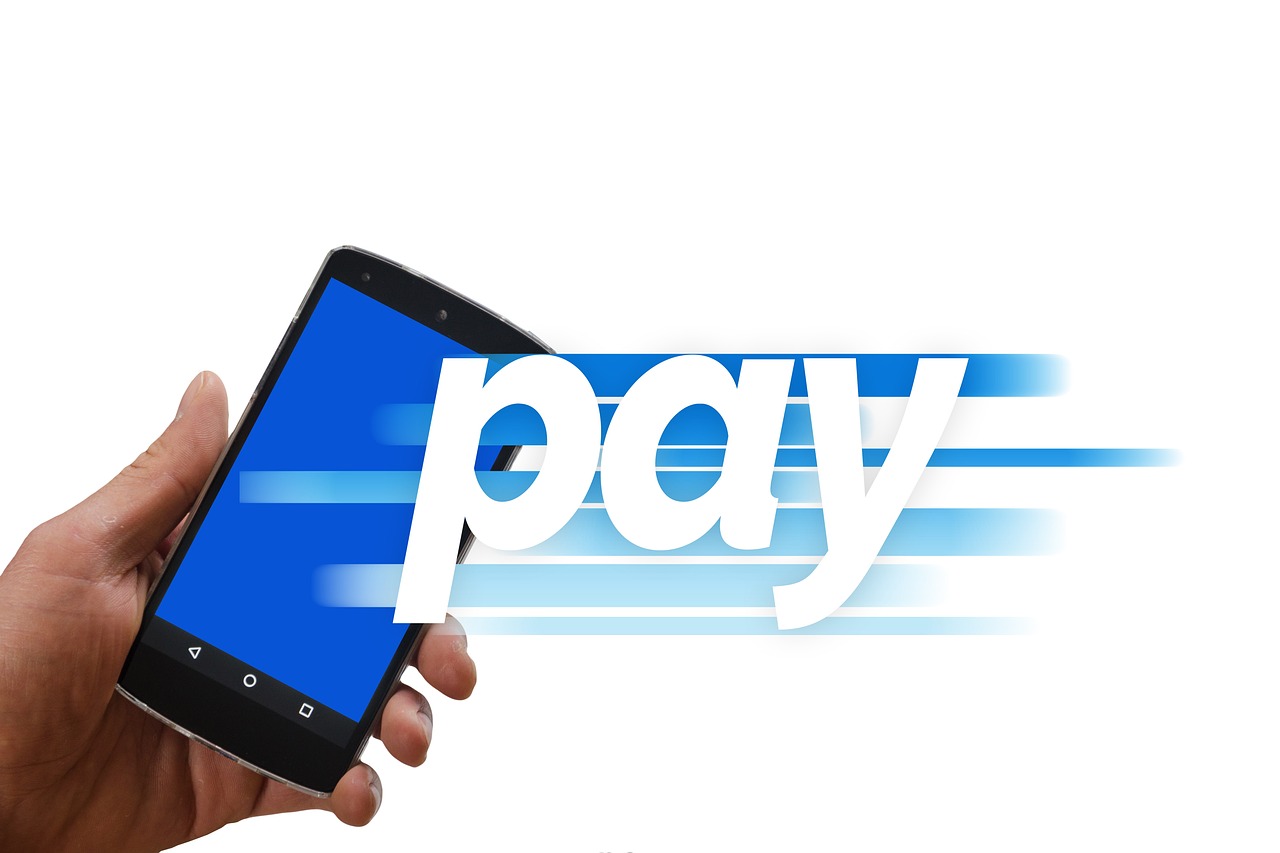
The Allure of Online Friendships
In today's digital age, the desire for connection has never been more pronounced. With just a few clicks, we can forge friendships that span across continents, cultures, and time zones. The allure of online friendships is irresistible for many individuals who seek companionship, understanding, and support. It’s like stepping into a vast ocean of possibilities where every wave brings the chance to meet someone new and exciting.
But what drives us to form these online relationships? For many, it’s the freedom of anonymity that social media provides. The virtual world allows us to present ourselves in a way that we might not feel comfortable doing in real life. We can curate our profiles, choose our photos, and share our thoughts without the fear of immediate judgment. This sense of liberation can be incredibly appealing, especially for those who struggle with social anxiety or feel isolated in their everyday lives.
Moreover, the internet has become a melting pot of diverse communities where individuals can find like-minded souls. Whether you’re passionate about gaming, art, or even niche hobbies, there’s a group out there waiting to welcome you with open arms. This sense of belonging can be incredibly fulfilling, as it allows people to connect over shared interests and experiences. It’s like finding a home away from home in a world that often feels chaotic and disconnected.
However, while the prospect of making friends online is enticing, it’s essential to remember that not all connections are genuine. Just as in the physical world, the internet has its fair share of tricksters and manipulators. The thrill of meeting new people can sometimes cloud our judgment, leading us to overlook potential warning signs. Therefore, it’s crucial to remain vigilant and discerning, ensuring that our quest for friendship doesn’t come at the cost of our safety.
In summary, the allure of online friendships lies in their ability to connect us with others in ways we never thought possible. The excitement of meeting new people, sharing experiences, and finding community can be incredibly rewarding. Yet, as we dive into this digital sea of connections, we must navigate carefully, keeping our eyes open to the potential dangers lurking beneath the surface.

Identifying Red Flags
When it comes to making friends online, it's easy to get swept up in the excitement of new connections. However, the digital world is not without its dangers, and recognizing red flags can be the difference between a positive experience and a potentially harmful one. So, how do you spot these warning signs? It all starts with paying attention to the details in your online interactions. Are they asking too many personal questions too quickly? Do they seem overly eager to share their life story while avoiding sharing anything about themselves? These can be subtle hints that something is off.
One of the most common red flags to watch for is the presence of fake profiles. You might come across a profile that seems too good to be true, complete with stunning photos and a captivating bio. But remember, the internet is rife with individuals who create false identities to lure unsuspecting victims. If you notice that the person has few friends, a lack of personal content, or their photos seem to be pulled from a stock image site, it’s time to proceed with caution. In fact, studies show that around 30% of online profiles may not represent real individuals, making it crucial to verify who you are engaging with.
Another critical area to consider is the way the person communicates. Are they overly flattering or pushy? Emotional manipulation is a tactic often employed by those with less than honorable intentions. They may try to exploit your vulnerabilities by playing on your emotions. For instance, if someone you just met online starts sharing sob stories or dramatic tales to gain your sympathy, take a step back. This behavior can indicate that they are trying to manipulate you into providing support or personal information.
To help you identify these red flags, here’s a quick summary of key warning signs to keep in mind:
- Inconsistent information: If their stories don’t add up or if they change details frequently, it could be a sign of deceit.
- Reluctance to meet in person: If they avoid video calls or in-person meetings, it’s a potential red flag.
- Pressure to share personal information: Be wary if they push you to share sensitive details early in the conversation.
- Unusual requests: Requests for money, gifts, or personal favors should always raise suspicion.
Staying aware of these red flags can significantly enhance your online safety. Remember, it’s always better to err on the side of caution. If something feels off, trust your instincts and take a step back. Online friendships can be rewarding, but they should never come at the cost of your safety and well-being.
Q: How can I verify if someone is real on social media?
A: Look for mutual friends, check their activity history, and see if their profile has a mix of personal posts and interactions. A real person will usually have a well-rounded profile.
Q: What should I do if I suspect someone is a catfish?
A: You can confront them about your suspicions, but it’s often safer to cut off communication and report the profile to the platform.
Q: Are there any tools to help identify fake profiles?
A: Yes, there are tools and websites that can help analyze profile pictures and check for duplicates online, but always use caution and trust your gut feelings.
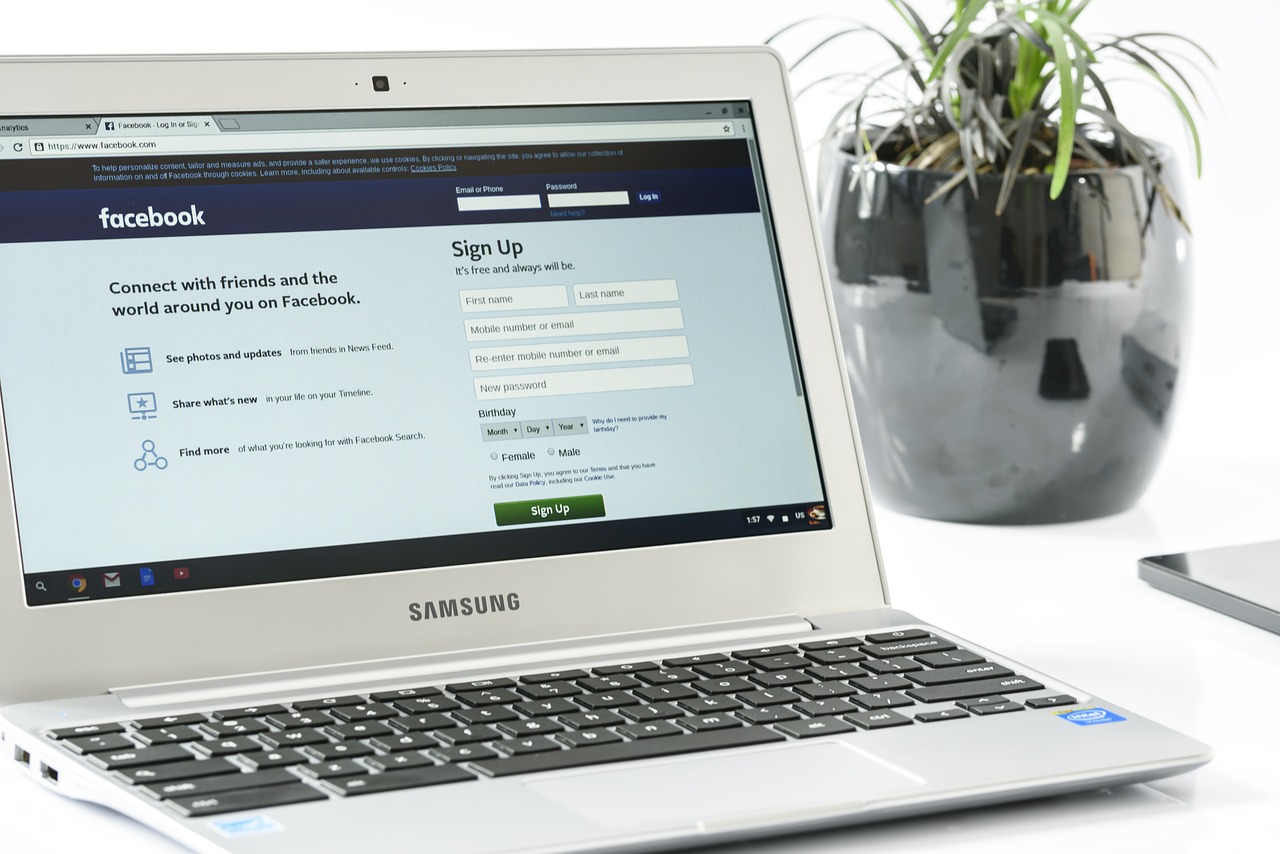
Fake Profiles and Catfishing
In the vast ocean of social media, where connections are just a click away, the phenomenon of catfishing has become a significant concern. Catfishing refers to the act of creating a false identity online, often with the intent to deceive others. Imagine meeting someone who seems perfect, only to discover that their entire persona is a carefully constructed façade. This unsettling reality can leave individuals feeling betrayed and vulnerable. But how can you spot these deceptive profiles before getting too deep into a relationship?
The first step in identifying a catfish is to look for inconsistencies in their profile. Often, catfish will use stolen photos or images that don’t seem to match their described lifestyle. If someone claims to be an adventurous traveler but only has a handful of generic photos, it might be time to raise an eyebrow. Additionally, catfishers tend to avoid video calls or face-to-face meetings, creating excuses that can seem plausible at first glance but eventually raise suspicion. Always remember, if they’re not willing to show their face, they might be hiding something.
Another red flag is when the person quickly becomes overly emotional or tries to establish a deep connection prematurely. They might share personal stories that tug at your heartstrings, aiming to build trust and manipulate your feelings. This emotional manipulation is a tactic often used by catfishers to ensnare their victims into a false sense of security. If someone you just met is sharing intimate details too soon, it’s wise to take a step back and evaluate the situation.
To help you navigate through the murky waters of online interactions, here are some key signs to watch out for when assessing the authenticity of a profile:
- Inconsistent Information: Look for discrepancies in their stories or details about their life.
- Reluctance to Meet: If they avoid video calls or in-person meetings, it could be a warning sign.
- Too Good to Be True: If their life seems perfect without any flaws, it might be fabricated.
- Overly Emotional: Be cautious if they rush to establish an emotional connection.
Protecting yourself from catfishing is not just about being skeptical; it’s about being proactive. Always conduct a reverse image search to check if their profile pictures appear elsewhere on the internet. This simple step can reveal if the images are stolen from someone else's profile. Additionally, trust your instincts. If something feels off, don’t hesitate to distance yourself from the interaction. Remember, your safety and well-being should always come first in the digital world.
By staying vigilant and informed, you can enjoy the benefits of online connections while minimizing the risks associated with fake profiles and catfishing. It’s all about being smart, staying aware, and knowing when to say, “No thanks!” to a stranger who might not be who they claim to be.

Signs of a Catfish
In the vast ocean of social media, it's easy to get swept away by the currents of charm and charisma. However, lurking beneath the surface are individuals who create deceptive identities to manipulate and exploit unsuspecting users. Recognizing the signs of a catfish is crucial for safeguarding your online experience. So, how can you spot these digital tricksters? Let's dive into the telltale signs that someone might not be who they claim to be.
First and foremost, inconsistencies in their stories can be a major red flag. If you find that your online friend frequently changes details about their life or their backstory seems to shift with every conversation, it’s time to be cautious. For example, they might say they live in one city but later mention they’re visiting from another. These inconsistencies can indicate that they are not being truthful about their identity.
Another sign to watch for is limited or no personal photos. A catfish often has very few pictures or uses images that look too perfect to be true. If their profile is filled with stock photos or pictures of someone else, it’s a strong indication that they are hiding their true self. Additionally, if they refuse to share recent photos or make excuses for not showing their face, it’s wise to be skeptical.
Moreover, be wary of individuals who try to move conversations off the platform quickly. If they suggest using a different app or even texting instead of chatting on social media, it could be a tactic to evade scrutiny. Catfish often prefer to communicate in spaces where they have more control and can manipulate the narrative without the platform's regulations. If they seem overly eager to get personal, take a step back.
Lastly, a common tactic used by catfish is to create a sense of urgency or emotional dependency. They may share sob stories or personal crises that make you feel compelled to help them. This emotional manipulation can lead to a dangerous dynamic where you feel responsible for their well-being. Always remember, genuine friendships are built on mutual respect and honesty, not emotional coercion.
In summary, staying alert to these signs can help you steer clear of catfish. If you notice any of these behaviors, it’s essential to trust your instincts and proceed with caution. After all, protecting yourself online is as important as forming connections. If something feels off, don’t hesitate to investigate further or cut ties.
- What should I do if I suspect someone is a catfish?
If you suspect someone is a catfish, it’s best to cease communication and report the profile to the platform. Protecting yourself is the top priority.
- Can catfish be dangerous?
Yes, catfish can be dangerous as they may attempt to exploit emotional vulnerabilities or even engage in scams. Always prioritize your safety.
- How can I verify someone's identity online?
You can verify someone’s identity by conducting a reverse image search of their photos, asking for video calls, or checking their social media presence for consistency.
- Are all online friendships dangerous?
No, not all online friendships are dangerous. Many people find genuine connections online, but it’s crucial to be cautious and aware of potential risks.
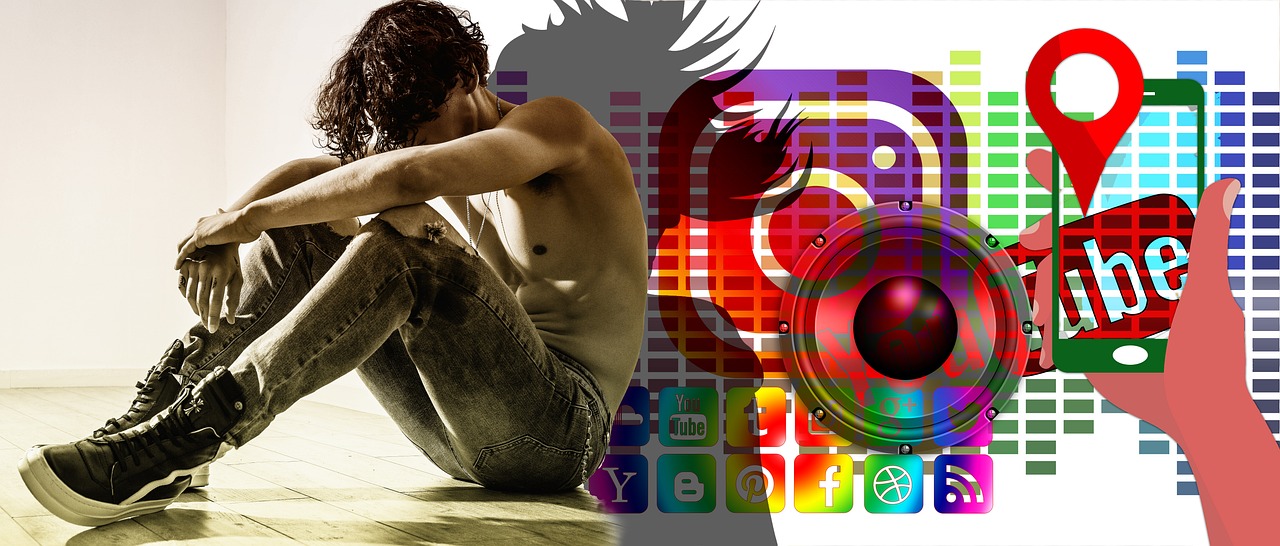
Protecting Your Information
In today's digital landscape, where information flows like water, protecting your personal data while engaging with strangers on social media is not just wise—it's essential. Think of your personal information as a treasure chest; if you leave it unguarded, someone might just take the whole thing! So, how do you keep your treasure safe? It all starts with being mindful of what you share.
First and foremost, avoid sharing sensitive information such as your home address, phone number, or financial details. These pieces of information can be misused by anyone with malicious intent. Instead, consider using direct messaging features to communicate with trusted friends rather than posting personal details publicly. Remember, once something is online, it can be nearly impossible to take back!
Another crucial aspect is to review your privacy settings regularly. Social media platforms often update their policies and settings, which means your information could become more accessible than you think. Take the time to adjust your privacy settings so that only your friends can see your posts and personal information. This creates a barrier between you and potential threats.
Additionally, be cautious about accepting friend requests from people you don’t know. It’s like opening your door to a stranger—would you really do that? If someone seems suspicious or if their profile looks too good to be true, trust your gut and hit that 'ignore' button. It’s better to be safe than sorry!
Lastly, consider using two-factor authentication (2FA) on your accounts. This adds an extra layer of security, making it harder for someone to access your account even if they have your password. Think of it as having a lock on your treasure chest, plus a guard dog! With these simple yet effective strategies, you can navigate the world of social media with confidence, knowing that your information is well protected.
- What should I do if I suspect someone is a catfish?
If you suspect someone is not who they claim to be, it's best to cease communication and report their profile to the social media platform. - How can I ensure my privacy settings are secure?
Regularly check your privacy settings and adjust them to limit who can see your information. Most platforms have detailed guides on how to do this. - Is it safe to meet online friends in person?
Meeting online friends can be safe, but always choose a public place and let someone know where you are going. Trust your instincts!
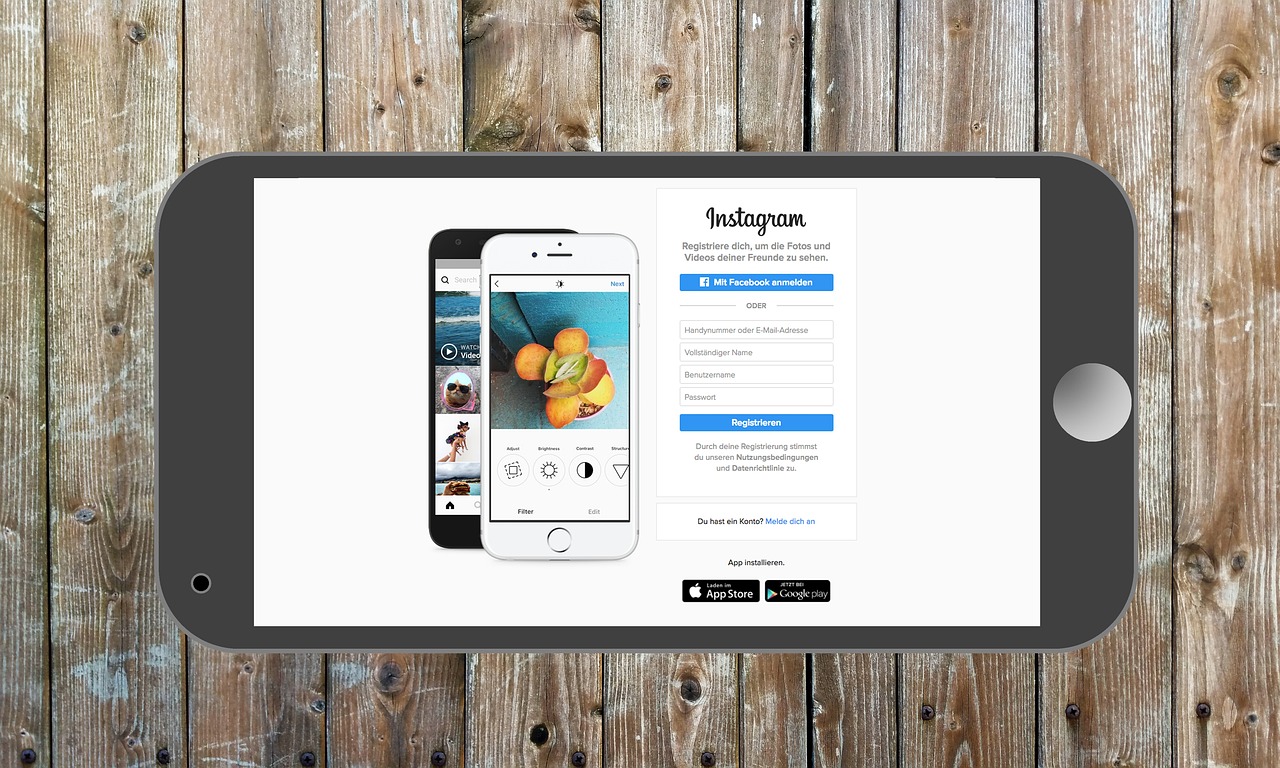
Emotional Manipulation
In the vast and often chaotic world of social media, emotional manipulation lurks around every corner, waiting to ensnare the unsuspecting. Have you ever felt a sudden rush of sympathy for someone you've just met online? That’s exactly what manipulators prey on. They exploit our natural instincts to connect and empathize, weaving intricate tales that tug at our heartstrings. These strangers, often hiding behind carefully crafted profiles, can create an illusion of intimacy that feels genuine, drawing you into their web of deceit.
Emotional manipulators are skilled at identifying and exploiting vulnerabilities. They might start with seemingly innocent conversations, gradually steering the dialogue towards topics that reveal your insecurities or fears. For instance, they may share their own fabricated struggles, prompting you to open up about your life in return. This exchange can create a false sense of trust, as you begin to feel that you understand each other on a deeper level. But beware! This is often just a tactic to gain your sympathy and, ultimately, your trust.
One common method of emotional manipulation is known as "love bombing." This is where the manipulator showers you with affection and attention, making you feel special and valued. Initially, it can be intoxicating. Who doesn’t love a little flattery? However, it’s crucial to recognize that this behavior can quickly turn into a means of control. Once they have you hooked, they might begin to demand more from you—whether it's your time, emotional support, or even financial assistance. The transition from adoration to demand can be startling, leaving you questioning your own feelings and the authenticity of the relationship.
Another tactic employed by these manipulators is the use of guilt. They may share sob stories or express feelings of abandonment, making you feel responsible for their happiness. This can create a cycle where you feel obligated to provide support, even when it comes at your own expense. It’s essential to recognize that a healthy relationship should never leave you feeling drained or guilty for not meeting someone else's emotional needs.
So, how can you protect yourself from emotional manipulation in the digital space? Here are a few strategies:
- Trust Your Instincts: If something feels off about a conversation, don’t ignore that gut feeling. It's often your subconscious picking up on red flags.
- Set Boundaries: Be clear about what you are comfortable sharing. Healthy relationships thrive on mutual respect, not on one-sided demands.
- Seek Outside Perspectives: Talk to friends or family about your online interactions. They can offer valuable insights and help you see things from a different angle.
Ultimately, emotional manipulation can have a profound impact on your mental health and self-esteem. By staying vigilant and recognizing the signs, you can navigate the murky waters of online friendships without falling prey to those who seek to exploit your kindness. Remember, online interactions should enhance your life, not complicate it!

Consequences of Online Friendships
Engaging with strangers online can lead to a mixed bag of experiences, both uplifting and disheartening. While many people find joy and companionship through digital connections, it's essential to understand that these friendships can come with significant consequences. The impact of online relationships extends beyond the screen, influencing our emotional well-being, mental health, and even our sense of security.
On one hand, online friendships can offer a sense of community that transcends geographical barriers. Individuals may find themselves part of supportive groups where they can share interests and experiences with like-minded people. This can be particularly beneficial for those who feel isolated in their offline lives. For instance, consider someone who is passionate about a niche hobby; through social media, they can connect with others who share that passion, fostering a sense of belonging. However, these connections can also lead to unforeseen complications.
Conversely, the darker side of online friendships can manifest through negative experiences that leave individuals feeling vulnerable. The anonymity of the internet can embolden some users to engage in harassment, scams, or emotional manipulation. It's not uncommon for someone to develop trust in a person they've never met, only to discover that their online friend has ulterior motives. This betrayal can lead to feelings of betrayal and emotional distress, highlighting the precarious nature of online interactions.
| Positive Aspects | Negative Aspects |
|---|---|
| Supportive communities | Harassment and bullying |
| Shared interests and hobbies | Emotional manipulation |
| Increased social interaction | Scams and deceit |
| Global networking opportunities | Loss of privacy |
Additionally, the emotional toll of online friendships can be profound. Individuals may experience anxiety or depression if they find themselves in toxic online environments. For example, a person who is constantly bombarded with negative comments or is a target of cyberbullying may struggle to maintain their mental health. It's crucial to recognize the signs of an unhealthy online relationship and to take steps to distance oneself from such influences.
In light of these potential consequences, it's vital for users to approach online friendships with a blend of enthusiasm and caution. While it's natural to seek connection and camaraderie, being aware of the risks can help individuals navigate their social media interactions more safely. Ultimately, the goal should be to cultivate positive relationships that enhance our lives while remaining vigilant against the pitfalls of the digital world.
- What are the signs of a toxic online friendship? Look for patterns of manipulation, constant negativity, or pressure to share personal information.
- How can I protect myself from online scams? Always verify the identity of new friends, avoid sharing sensitive information, and be cautious of unsolicited requests for money.
- Is it safe to meet online friends in person? If you decide to meet, ensure it's in a public place, inform someone of your whereabouts, and trust your instincts.
- Can online friendships be as fulfilling as in-person ones? Absolutely! Many people find meaningful connections online, though they may come with different challenges.

Positive Aspects of Online Connections
In today's digital world, the ability to form friendships online has transformed the way we connect with others. While there are undeniable risks associated with befriending strangers on social media, it's essential to recognize the positive aspects that these connections can bring. For many, online friendships serve as a lifeline, providing support and companionship that might be hard to find in their immediate surroundings.
One of the most significant benefits of online connections is the opportunity to meet like-minded individuals. Imagine being able to chat with someone halfway across the globe who shares your passion for photography, gaming, or even a niche hobby like collecting vintage stamps! This shared interest can lead to meaningful conversations, collaborations, and friendships that enrich our lives in ways we never thought possible.
Additionally, online friendships can foster a sense of community. In a world that often feels isolating, especially during challenging times, having a group of friends who understand your struggles can be incredibly comforting. Many people find solace in online support groups or forums where they can share their experiences, seek advice, and uplift one another. This sense of belonging can be crucial for mental health, helping individuals feel less alone in their journeys.
Moreover, online connections often allow for greater flexibility and convenience. Unlike traditional friendships that may require physical presence, online friendships can thrive regardless of time zones and geographic barriers. You can connect with friends at any time, whether it's a late-night chat or a quick message during lunch breaks. This flexibility makes it easier to maintain relationships, especially for those with busy schedules.
However, it's important to approach these connections with care. While the potential for positive experiences is vast, users should remain vigilant and discerning. Here are a few key points to keep in mind:
- Be open-minded: Embrace the diversity of people you meet online. Different perspectives can enrich your understanding of the world.
- Engage actively: Participate in discussions and activities to deepen your connections with others.
- Share experiences: Sharing personal stories can strengthen bonds and create a sense of trust.
In conclusion, while there are risks associated with online friendships, the positive aspects cannot be overlooked. From finding a supportive community to enjoying flexible interactions, these connections can significantly enhance our lives. So, next time you’re scrolling through your social media feed, remember that behind each profile is a potential friend waiting to share their journey with you.
Q1: Can online friendships be as meaningful as in-person ones?
A1: Absolutely! Many people find that online friendships can be just as deep and meaningful as those formed in person, especially when they share common interests and values.
Q2: How can I ensure my online friendships are safe?
A2: Always be cautious about the information you share. Avoid giving out personal details and take your time getting to know someone before meeting them in person.
Q3: What are some signs that an online friendship is unhealthy?
A3: If you feel pressured to share personal information, experience frequent emotional manipulation, or notice a pattern of negative interactions, it may be time to reevaluate the friendship.
Q4: Is it possible to transition an online friendship to an in-person one?
A4: Yes, many online friendships transition to real-life meetings successfully. However, always prioritize safety and meet in public places if you decide to take that step.
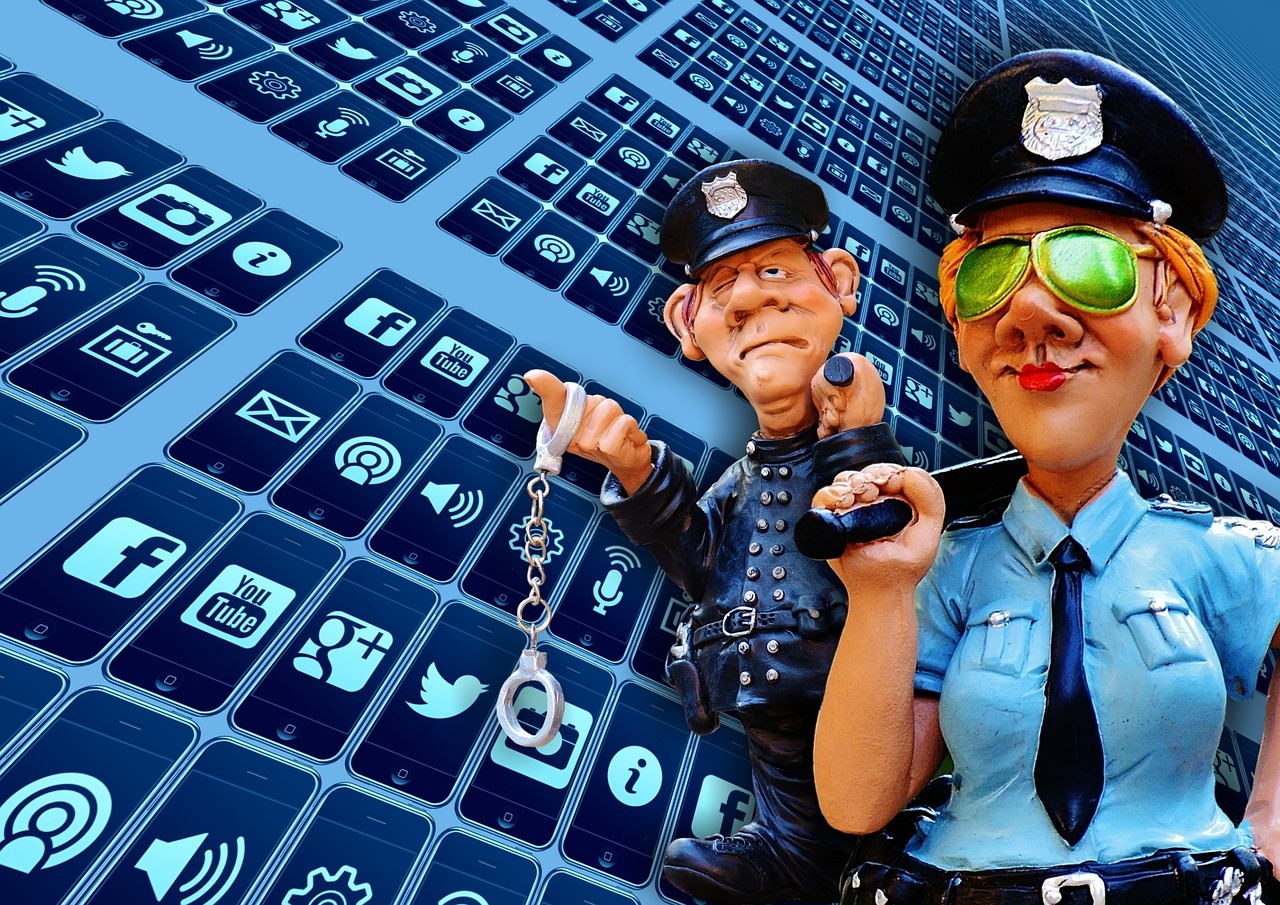
Negative Experiences and Risks
Engaging with strangers on social media might seem like a harmless way to expand your social circle, but the reality is that it comes with a plethora of negative experiences and risks that can leave you feeling vulnerable and exposed. Imagine walking into a crowded room filled with people you don’t know; it can be exciting, but it can also be daunting. Now, add the veil of anonymity that the internet provides, and you have a recipe for potential disaster.
One of the most significant risks associated with online friendships is the threat of harassment. Unlike face-to-face interactions, where you can gauge someone's intentions through body language and tone, online communication often lacks these cues. This can lead to misunderstandings or, worse, intentional harassment. Many individuals have reported feeling unsafe due to unwanted messages, inappropriate comments, or even aggressive behavior from people they barely know. These experiences can be psychologically taxing, leaving victims feeling anxious and paranoid about their online interactions.
Another alarming risk is the prevalence of scams. The anonymity of the internet allows scammers to easily create fake identities, making it challenging to discern who is genuine. Many users have fallen victim to financial scams, where a supposed "friend" manipulates them into sending money under false pretenses. It's essential to remember that if something sounds too good to be true, it probably is. Scammers often exploit the emotional connections formed online, using tactics that prey on your trust and compassion.
Emotional distress is another significant consequence of befriending strangers online. The digital world can be a breeding ground for toxic relationships, where individuals may find themselves in manipulative or abusive situations. Emotional manipulators can be particularly skilled at exploiting vulnerabilities, leading to feelings of guilt, shame, or inadequacy. This can significantly impact a person's mental health, leading to anxiety, depression, or even social withdrawal. Recognizing the signs of emotional manipulation is crucial in protecting oneself from these detrimental experiences.
To further illustrate the potential risks, consider the following table that outlines common negative experiences associated with online friendships:
| Negative Experience | Description |
|---|---|
| Harassment | Unwanted and aggressive messages that can lead to feelings of anxiety and fear. |
| Scams | Fraudulent schemes that manipulate users into giving money or personal information. |
| Emotional Manipulation | Exploitation of vulnerabilities, leading to psychological distress and unhealthy relationships. |
In conclusion, while the internet can be a fantastic place to forge new connections, it's vital to remain vigilant. The risks associated with online friendships can have lasting effects on your emotional and psychological well-being. Always trust your instincts and be cautious about who you engage with. After all, in the vast world of social media, not everyone has your best interests at heart.
- What should I do if I feel unsafe with someone I met online? If you feel uncomfortable or threatened, it's crucial to block and report the individual on the platform. Trust your instincts and prioritize your safety.
- How can I identify a scammer? Look for inconsistencies in their story, overly emotional appeals for money, or reluctance to meet in person or video chat.
- Are all online friendships dangerous? Not necessarily! Many people form genuine and supportive friendships online. However, it's essential to be cautious and aware of the potential risks.

Staying Safe on Social Media
In this digital age, where social media platforms are an integral part of our daily lives, staying safe online has become more crucial than ever. With just a few clicks, we can connect with friends, family, and even strangers from around the world. However, this convenience comes with its own set of risks. So, how can we navigate these platforms without falling into traps laid by ill-intentioned users? The answer lies in being proactive about our online safety.
First and foremost, always scrutinize friend requests. It may be tempting to accept every request that pops up, especially if you have mutual friends. However, take a moment to look at the profile. Does it seem genuine? Are there enough personal details or posts that indicate it's a real person? If something feels off, trust your instincts and hit that "ignore" button. Remember, it’s better to be safe than sorry!
Another essential practice is to adjust your privacy settings. Most social media platforms allow you to customize who can see your posts, your friend list, and even your profile information. By restricting access to your profile, you can significantly reduce the chances of unwanted attention. For example, consider setting your account to private, allowing only approved friends to view your content. This simple step can create a barrier against potential threats.
Furthermore, be cautious about sharing personal information. It might seem harmless to post about your weekend plans or your location, but this can give potential stalkers or scammers the information they need to exploit you. Keep your personal life private. If you feel the urge to share, consider using direct messages instead of public posts. This way, you can maintain a sense of connection without exposing yourself to unnecessary risks.
In addition to being mindful of what you share, it's crucial to recognize the signs of emotional manipulation. Strangers on social media can sometimes engage in tactics designed to elicit sympathy or trust. If someone you just met online starts asking for money or personal favors, it’s a huge red flag. Always remember, a real friend won’t pressure you for assistance, especially if you’ve just met!
To further enhance your safety, consider using a two-factor authentication method for your accounts. This adds an extra layer of security by requiring not only your password but also a verification code sent to your phone or email. It’s a small step that can make a significant difference in protecting your account from unauthorized access.
Lastly, educate yourself about the various types of scams that exist on social media. From phishing attempts to fake giveaways, being informed is your best defense. If something sounds too good to be true, it probably is! Stay alert and question the authenticity of offers that seem overly generous.
- What should I do if I suspect someone is a catfish?
If you suspect someone is not who they claim to be, gather evidence of their inconsistencies and consider confronting them directly. If you feel uncomfortable, it’s best to block and report the profile. - How can I report inappropriate behavior on social media?
Most platforms have a reporting feature. Use it to report any suspicious activity or harassment to help keep the community safe. - Is it safe to meet someone from social media in person?
While some friendships can blossom into real-life connections, it’s essential to meet in a public place and inform a friend or family member about your plans.
Frequently Asked Questions
- What are the dangers of befriending strangers on social media?
There are several risks involved in making friends with strangers online, including exposure to scams, emotional manipulation, and privacy breaches. It's essential to be cautious and recognize potential red flags in online interactions.
- How can I identify a fake profile on social media?
Look for inconsistencies in profile pictures, vague or overly generic bios, and limited activity. If someone avoids video calls or provides inconsistent information about themselves, these could be signs of a catfish.
- What should I do if I suspect someone is trying to manipulate me emotionally?
If you feel uncomfortable or pressured, it's crucial to trust your instincts. Consider cutting off communication and reporting the individual to the platform. Surround yourself with supportive friends or family who can help you process the situation.
- Are there any benefits to forming online friendships?
Absolutely! Online friendships can provide a sense of community, support, and connection, especially for those who may feel isolated in their offline lives. They allow individuals to meet like-minded people and share experiences.
- How can I protect my personal information on social media?
Be mindful of what you share online. Avoid posting sensitive information like your home address or phone number. Adjust your privacy settings to limit who can see your posts and be wary of friend requests from unknown individuals.
- What are some common signs of a catfish?
Common indicators include reluctance to meet in person, inconsistent stories about their life, and profiles that lack detailed information or genuine photos. If something feels off, it's worth investigating further.
- What should I do if I encounter harassment online?
If you face harassment, document the incidents and report them to the social media platform immediately. You can also block the individual and seek support from friends or professionals if needed.
- How can I safely navigate social media?
Implement safety measures like using strong passwords, being cautious about friend requests, and regularly reviewing your privacy settings. Educate yourself about potential risks and stay informed about safe online practices.






